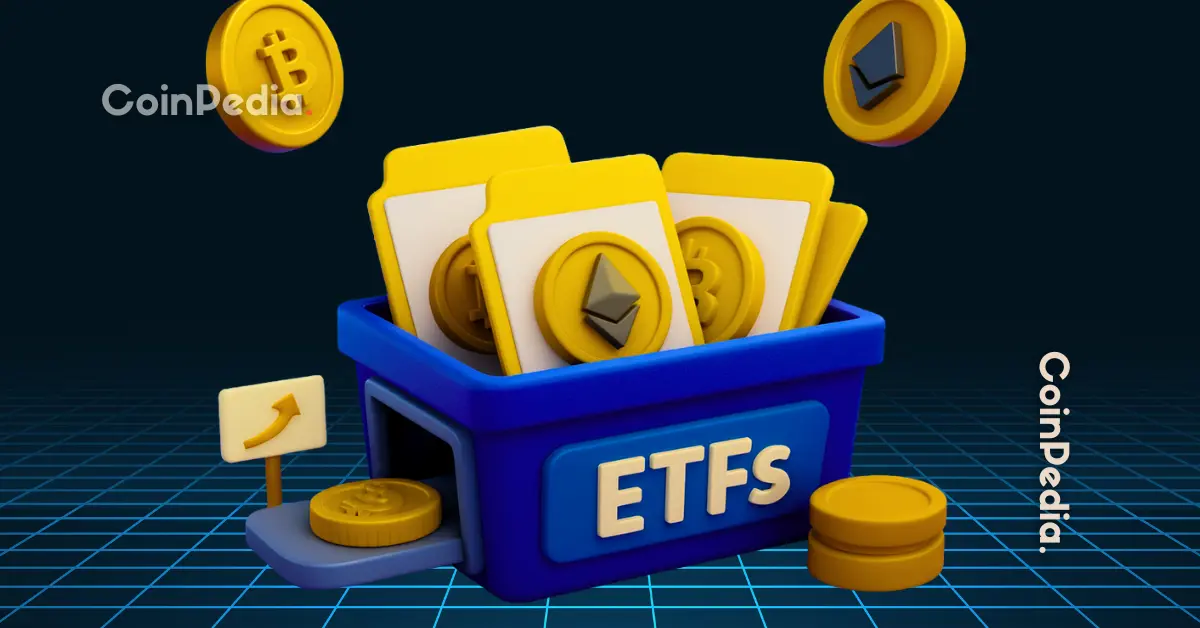
In a surprising turn of events, spot ETFs for Litecoin (LTC) and Hedera (HBAR) are now officially effective and will begin trading on NASDAQ tomorrow, according to Canary Funds CEO Steven McClurg. Litecoin and Hedera are the next two token ETFs to go effective after Ethereum, and Canary Funds has confirmed their launch tomorrow.
Additionally, Bloomberg’s Senior ETF Analyst Eric Balchunas confirmed that the NYSE has certified the 8-A filings for multiple crypto ETFs, including Bitwise’s spot Solana ETF (SOL) and Grayscale’s GSOL, which will convert on Wednesday.
He said that the Exchange has posted listing notices for Bitwise Solana, Canary Litecoin, and Canary HBAR to launch tomorrow, and Grayscale Solana to convert the day after. Unless there is last-minute SEC intervention, the launches are moving forward.
This set of ETF approvals has raised questions about how such progress is possible during the ongoing U.S. government shutdown. Journalist Eleanor Terrett explained that certain legal provisions allow ETFs to move forward without active SEC oversight.
Under the Securities Exchange Act of 1934, the Form 8-A filing formally registers ETF shares for exchange trading, while the S-1 filing registers them under the Securities Act of 1933.
The NYSE certified all relevant 8-A filings this morning, marking the final procedural step before trading begins. As for the S-1s, issuers included language allowing their registration statements to automatically go effective 20 days after filing, bypassing the need for manual SEC approval.
This mechanism means ETFs can legally go live even when the SEC staff is unavailable, allowing launches to continue uninterrupted despite the shutdown.
However, not every digital asset community is celebrating.
While the crypto market welcomes new ETF launches, XRP investors are once again left behind. Legal expert Bill Morgan noted that delays around XRP have become a recurring theme and that the asset continues to be excluded from major developments.
He also said that XRP’s price generally mirrors Bitcoin’s movements, explaining that even multiple ETF approvals would not necessarily drive the token higher if Bitcoin were to fall.
CoinPedia has been delivering accurate and timely cryptocurrency and blockchain updates since 2017. All content is created by our expert panel of analysts and journalists, following strict Editorial Guidelines based on E-E-A-T (Experience, Expertise, Authoritativeness, Trustworthiness). Every article is fact-checked against reputable sources to ensure accuracy, transparency, and reliability. Our review policy guarantees unbiased evaluations when recommending exchanges, platforms, or tools. We strive to provide timely updates about everything crypto & blockchain, right from startups to industry majors.
All opinions and insights shared represent the author's own views on current market conditions. Please do your own research before making investment decisions. Neither the writer nor the publication assumes responsibility for your financial choices.
Sponsored content and affiliate links may appear on our site. Advertisements are marked clearly, and our editorial content remains entirely independent from our ad partners.
Bitcoin and Ethereum spot ETFs kept their upward momentum on October 27, drawing a combined…
Malgo DEX, a decentralized peer-to-peer (P2P) crypto exchange platform, has announced the rollout of a…
Trump-linked American Bitcoin Corp, co-founded by Eric and Donald Trump Jr., just acquired 1,414 Bitcoins…
Henrik Zeberg, the Head Macro Economist at Swissblock, known for connecting macroeconomic cycles with asset…
The Hedera (HBAR) community is celebrating a major milestone as the network’s first U.S. exchange-traded…
What do you get when you combine XRP and DeFi? Why, XRPfi of course. Welcome…